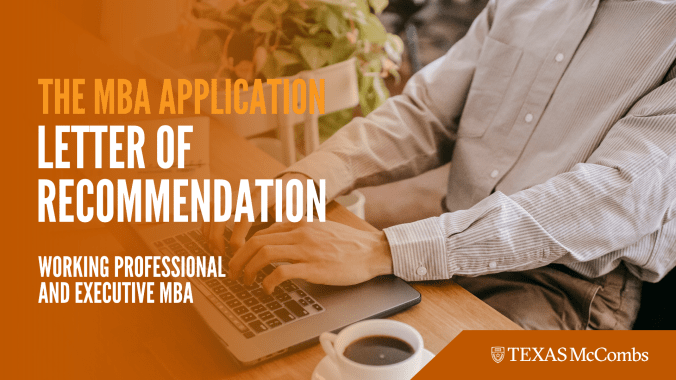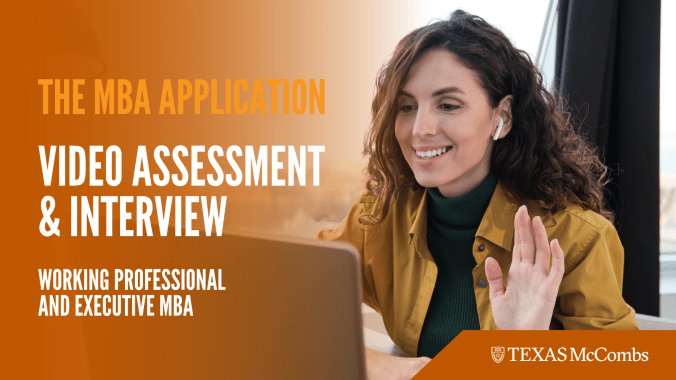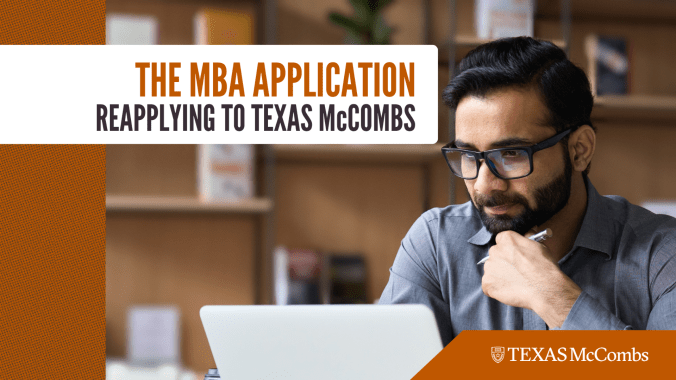This post is written by Noah Graham.
Austin, Texas – a city that pulsates with energy, creativity, and a unique blend of cultures. Known for its eclectic music scene, mouthwatering cuisine, and tons of outdoor activities, Austin offers an unforgettable experience for locals, visitors, and students. Whether you’re a foodie tasting the latest culinary delights, a music lover ready to discover a new sound, or an outdoor enthusiast eager to explore the city’s natural swimming pools, Austin has something for everyone!
Our Full-Time MBA Ambassador Committee and MBA program staff compiled a list of their Top Ten Things to Do in Austin.
10. Blue Starlite Drive-in Theater

Image courtesy of Visit Austin
Looking for a unique movie experience? Check out Blue Starlite Drive-In Theater! As a staple of Austin, Blue Starlite has been offering relaxing, outdoor viewings since 2009. Choose between multiple locations ranging from the quiet serenity of Central I-35 to the buzzing atmosphere of Downtown Austin. Locations offer a variety of classic films or new and recent movies! With additional indoor and easy food-delivery options, this drive-in makes for an unforgettable night.
Visit the website to learn more about showtimes and locations! Showtimes vary by location.
9. De Nada Cantina

Image courtesy of De Nada Cantina
In the mood for tacos and drinks? Check out “Austin’s Loveliest little taco spot”, De Nada Cantina! As a winner of The Austin Chronicle’s “Best of Austin” award for 2023, this spot has some of the best authentic tacos and margaritas. Stop by during Happy Hour from 3:30 – 6:30 PM and browse the extensive drink selection or stop by close to midnight to try some of their late-night menu. When visiting Austin, you can’t miss out on De Nada Cantina.
Open from 11AM – 12AM Monday through Saturday and 11AM – 10PM on Sundays. Visit the website to see more of the amazing dishes and drinks they have to offer!
8. The Domain

Photo Courtesy of Visit Austin.
In need of a shopping spree? Visit Austin’s premier destination for all things fashion, luxury, dining, and family fun – The Domain. This massive outdoor shopping center hosts over 100 unique shops and restaurants. Shop the latest styles from traditional stores like H&M, Anthropologie, Nordstrom, and Zara to luxury brands like Gucci, Louis Vuitton, Lululemon, Rolex, and more! Grab a bite to eat at Blue Sushi Sake Grill, Maggiano’s, Gloria’s, Culinary Dropout, or Fleming’s Prime Steakhouse, then top off the trip with a visit to The Yard Milkshake Bar. The Domain offers an all-inclusive destination where leisure meets luxury.
Open 10AM – 8PM Monday through Thursday, 10AM – 9PM Friday and Saturday, and 10AM – 6PM on Sundays. Visit the official website for more information on hours and the plethora of shops available.
7. Honeymoon Spirit Lounge

Image courtesy of Honey Moon Spirit Lounge – Yelp
In the mood for a high-end dining experience? Visit the Honeymoon Spirit Lounge on W. 34th! Bring your friends and enjoy savory dishes such as the Seoul Hot Fried Chicken and Cider Glazed Crispy Pork Belly, or take a look at the impressive 3-page drink selection and get a custom cocktail. Boasting a beautiful array of dinner, brunch, and drink options, this beautiful restaurant has both the decor and food presentation that will leave you impressed.
Open 4PM – 10PM Tuesday through Thursday, 4PM – 11PM Friday & Saturday, and 10:30AM – 3:30PM Brunch on Saturday & Sunday. Check out the website for more info!
6. Lady Bird Lake Trail & Greenbelt

Image courtesy of Visit Austin / Jeff Djayasaputra
Into biking? Bring some friends and visit Lady Bird Lake Trail! This 10-mile-long walking/biking trail is a beautiful way to traverse and see more of Austin. Some even use it to commute from one side of the city to the other! Along the way, you can check out Capital Cruises Bat Watching Tours, home of the largest electric paddle wheel boat in the country, and see the bat colonies under Congress Bridge. This staple of Austin is a center of fitness, fun, and community.
The Austin Greenbelt is the best location for hikers and explorers. Visitors can enjoy hiking, biking, rock climbing, bouldering, swimming, or just casually walking. The Greenbelt got its name from the lush trees, hidden waterfalls, and swimming holes. Learn more about the Barton Creek Greenbelt Trail.
5. Mozart’s Coffee Roasters

Image courtesy of Mozart’s Coffee Roasters – Facebook
Get energized with Mozart’s Coffee Roasters! Located on Lake Austin, you’ll be able to enjoy their endless coffee bar and delicious custom bakery items while gazing into the beautiful Austin scenery. Come early in the day to indulge in coffee and paddleboarding or stay later to enjoy the sweet treats and live music. With consistent community events, a beautiful location, and unlimited coffee, you won’t want to miss Mozart’s.
Open 7AM – 12AM everyday. See the website for more info!
4. Mueller Lake Park & Farmers Market

Image courtesy of The Austin Things.
Step into a world of outdoor recreation and community at Mueller Lake Park! Created by the Mueller Community as a walkable town with a welcoming atmosphere, this beautiful area includes a 3-mile running trail loop, dog-friendly community park, an amphitheater, dozens of tasty restaurants like Dish Society and Colleen’s Kitchen, and happy hour spots like Blue Lacy. On Sundays, Muller Park hosts Austin’s Best Farmers’ Market with over 120 vendors of art and produce. So whether it’s food, exercise, or community you’re looking for, you’ll never run out of entertainment at Mueller Lake Park.
Open from 5AM – 10PM every day. Farmer’s Market opened on Sundays. Visit their website to learn more about future events and nearby restaurants!
3. East 6th Street

Image courtesy of The Infatuation

Image courtesy of Tribeza.com / Roger Ho
Immerse yourself in the center of Austin’s busy nightlife – East 6th Street. Notorious for its abundance of trendy restaurants, mouth-watering food trucks, and lively bars, East 6th is never short of a party. Whether you’re looking for a high-class dining experience at Suerte or Canje, wanting to kick back with friends at bars like Zilker Brewing Co., Nickel City, Latchkey, and Violet Crown Social Club, or anything in between, there’s something for everyone to have a great night. It doesn’t matter if you’re an Austin local or an eager newcomer, East 6th is a place for everyone to get together and experience Austin’s nightlife culture.
Honorable Mention: Barbarella on Red River Street
“It’s a McCombs tradition to end your Thursday night dancing to 2000s music at the club affectionately known as ‘Barbs’! Stop by after your night out at the Red River Cultural District Food Court – a diverse, delicious collection of food trucks right outside.” – Colby Bermel
2. Kemuri Tatsu-Ya

Image courtesy of Kemuri Tatsu-Ya
Discover Austin’s very own Japanese & Texan fusion restaurant, Kemuri Tatsu-Ya! Whether it’s a savory brisket, fresh tuna collar, or chili cheese Takoyaki you’re looking for, this restaurant offers delicious Japanese flavors with a Texan twist. Don’t miss out on their wide array of expertly crafted cocktails that suit perfectly with the bold and savory dishes. With a diverse menu, extensive drink selection, and warm atmosphere, this is a place that stands out even among Austin’s already incredible food choices.
Open from 5PM – 10PM most days. Check out the website to see more about hours and menu items!
1. Zilker Park

Image courtesy of nowplayingaustin
Located in the heart of Austin, Zilker Park invites you to explore its many activities! Go swimming at Barton Springs Pool, play volleyball, take a stroll through the Botanical Gardens, or see a concert at the Hillside Theater! Make sure to soak up the sun by renting a paddleboard from Zilker Boat Rentals or taking a dip in Barton Springs Pool! Not to mention, the very convenient free shuttle service! Pack your picnics, grab some friends, and immerse yourself in the spirit of Austin.
Open from 5AM – 10PM everyday. Visit the Zilker website to learn about all of its amenities.
Visit Texas McCombs MBA to learn more about our programs and upcoming events or take a peek into student life on Instagram. For any inquiries, don’t hesitate to reach out to the MBA Admissions Team. We look forward to connecting with you on your journey to success.
Hook ‘Em!









